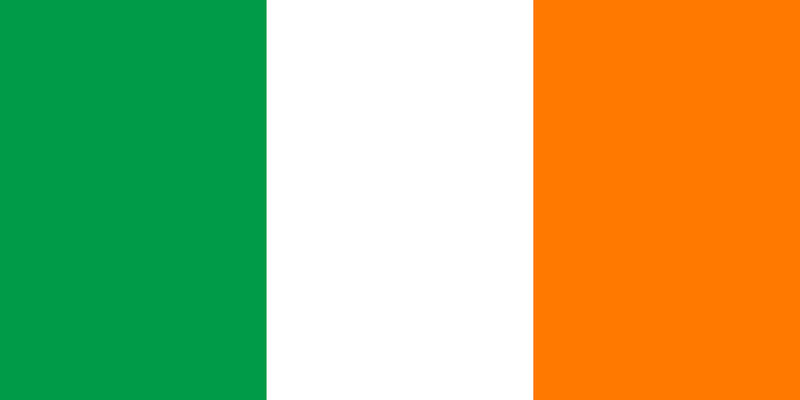24 September 2020
View from the Cotswolds
The Irish Conundrum: Problem or Solution?
By Paul Branch
 Ireland looms large yet again on the Brexit stage: the oven-ready deal that we thought we had agreed before the general election, and before everyone’s attention lurched over to Covid-19, seems to be not quite as well-prepared as we had thought. Especially the bit about protecting the Good Friday Agreement by not having a border on the island of Ireland, or indeed anywhere else. Strange that our European colleagues (all 27 of them, without dissent) seemed to grasp this part of the withdrawal agreement perfectly well before signing up for it. But our signatory Boris, presumably also the instigator of the subject wording, hadn’t read it or maybe hadn’t quite grasped its full meaning, or had agreed to it simply in order to move things along, fulfil one of his many electoral promises and appease his party. And now he’s decided to change it just as the death knell sounds on our trade negotiations with the EU. So once again the pesky Irish become a thorn in our side with a continuing seemingly insoluble conundrum.
Ireland looms large yet again on the Brexit stage: the oven-ready deal that we thought we had agreed before the general election, and before everyone’s attention lurched over to Covid-19, seems to be not quite as well-prepared as we had thought. Especially the bit about protecting the Good Friday Agreement by not having a border on the island of Ireland, or indeed anywhere else. Strange that our European colleagues (all 27 of them, without dissent) seemed to grasp this part of the withdrawal agreement perfectly well before signing up for it. But our signatory Boris, presumably also the instigator of the subject wording, hadn’t read it or maybe hadn’t quite grasped its full meaning, or had agreed to it simply in order to move things along, fulfil one of his many electoral promises and appease his party. And now he’s decided to change it just as the death knell sounds on our trade negotiations with the EU. So once again the pesky Irish become a thorn in our side with a continuing seemingly insoluble conundrum.
The threat spotted in the current wording of the deal could allegedly lead to a “foreign power” splitting the UK … or what’s left of the UK after Scotland gains its independence (as a result of the utter nonsense being perpetrated in Downing Street by Dominic Cummings and his good mate the self-styled Minister for the Union). Hence the supposed need for the Internal Market Bill to clarify matters. A post on Facebook recently captured beautifully the irony of the situation:
Dear Britain
We absolutely feel your pain. You are not alone. It is awful when a foreign power tries to dictate your future and even worse when they split your country. Give us a call if you need some advice on how to handle this.
Yours sincerely,
Ireland
Given that we remain a divided country on many issues (the withdrawal agreement, Brexit generally… yeah, still, according to Cummings … Covid management and lockdowns, racism, nurses’ pay, climate change to name but a few) and find it increasingly difficult to have sensible discussions with our potential future trading partners, it’s interesting to take a peek across the Irish Sea to observe how their political situations are being managed domestically and internationally. They too have problems with Brexit and the virus.
Historically since they became a sovereign state there have been two main political parties as a result of the treaty establishing Eire in 1921: Fine Gael supported the treaty negotiated by Micheal Collins with Winston Churchill which resulted in the Irish Free State, Fianna Fail led by Eamon de Valera objected to the treaty which retained an oath of allegiance to the Crown and partitioned Northern Ireland so as to remain part of the UK. The ensuing civil war served to cement these fundamental differences between the two parties for decades, all the more ironic for the fact that both had their roots in Sinn Fein, the 1905 organisation that sparked Ireland’s modern day independence movement.
Sinn Fein was the political arm of the original IRA that was party to the Easter rising/rebellion in Dublin in 1916, and allegedly was also connected to the later Provisional IRA involvement in Northern Ireland which gained momentum from the shameful shootings of Bloody Sunday in 1972. Violence on all sides continued through to the peace settlement enshrined in the multi-national Good Friday Agreement signed in 1998 which only complete morons would wish to disturb – even all the EU states who were not directly or even indirectly involved, and the USA, can appreciate that. Sinn Fein’s political aim then was and still is a united Ireland, but as a modern political party they too have evolved to include a number of other, socio-economic objectives.
One sad conclusion to come out of the settlement in Northern Ireland is that a peaceful outcome invariably needs violence and war to make politicians sit up, pay attention and actually do something. The late lamented NI politician and MEP John Hume rightly earned his share of the 1998 Nobel Peace Prize for bravely pursuing a policy of non-violent nationalism, directly against the wishes of Sinn Fein, and for the tireless negotiating role he played over many years in eventually helping to secure the peace settlement. His ploy of getting agreements in Dublin, London and Washington DC before putting them before his counterparts in Belfast was hard work to put it mildly, but it was instrumental in achieving the success he craved. However, it does seem people need to die for a cause before compassion and good sense kick in. As Hume once said when trying to put the peace cause into the perspective of everyday life in war-torn Londonderry, “You can’t eat a flag”. His principled vision, courageous leadership, compelling negotiation skills and the ability to concoct a cunning plan are talents in short supply in Westminster.
Sinn Fein’s star continues to rise in the Northern Ireland Assembly where it is the main opposition to the DUP and the other half of the power-sharing government. At our last general election they won 7 seats in the House of Commons, just one less than the DUP, although of course they do not exercise their right to attend Parliament or vote … a little matter of the oath to the Queen again. In the Republic at the general election in February, where they use perhaps the more democratic electoral voting system of proportional representation, Sinn Fein came from almost nowhere to become the second largest party, one seat less than Fianna Fail and two more than Fine Gael. Ireland is used to managing minority governments by one or other of the two main parties, or governing by coalition, but there was no way Sinn Fein could achieve either of those compromise positions – neither of the main parties wanted to be associated with Sinn Fein’s tarnished reputation for violence. Eventually, and together with the Green Party, Fianna Fail and Fine Gael agreed a coalition which produced more than the necessary 80 seats for a governing majority, burying the ancient hatchets of the 1920s (if they still exist) and keeping Sinn Fein out of power. In this situation the new government has a broad manifesto satisfying all three parties in the coalition, and the positions of head and deputy head of government will alternate in two years’ time between Fianna Fail and Fine Gael.
One could argue that this solution has a chance of bringing about a cohesive, inclusive ruling body with no extreme measures, leading to the ultimate aim of a more united country (if not a united Ireland) – again not a description that could be applied easily to us right now with our deeply divisive and confrontationally aggressive political style. Unity after all is the aim surely, and today it’s needed more than at any time since the second World War. Our Irish friends across the sea have shown us a direction we might do well to follow and talents we need to acquire … unless of course you’re of the opinion that Party trumps Country ..?
Postscript: Returning to the Facebook post mentioned above, there was a PS to the message: “The other 62 countries that have gained their independence from you say hi.” A nice touch.


